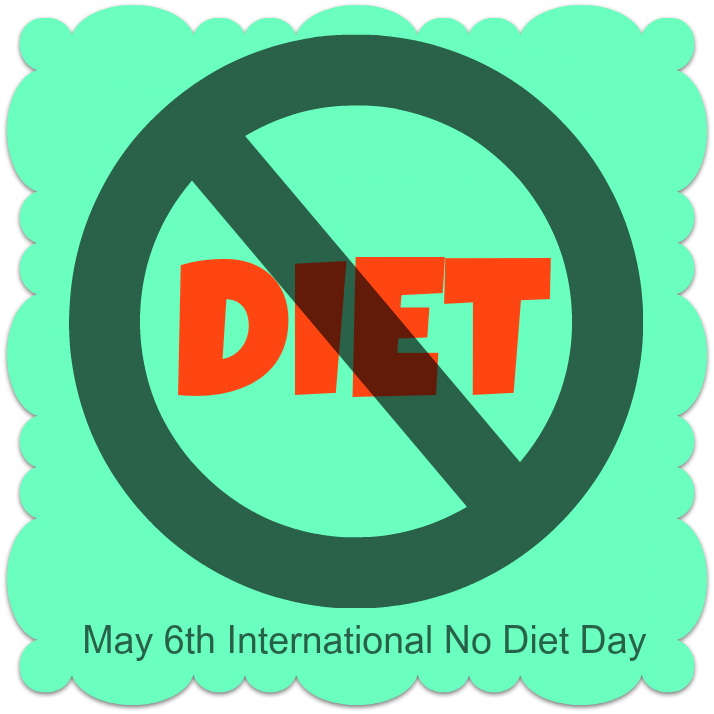Reblogged from our friends at the National Eating Disorders Information Centre (NEDIC). For more information about NEDIC and the wonderful work they do, go to www.nedic.ca .
*~*~*~*~*~*~*~*~*~*~*~*~*~*~*~*~*~*~*~*~*~*~*~*~*~*~*~*~*~*~*~*~*~*~*~*~*~*~*~*~*~
May 6: Celebrate International
No Diet Day!
Billions of dollars are spent every year on the latest diet programs, diet pills and diet books, yet most dieters regain all of, if not more of their weight within one to five years . On May 6th, International No Diet Day, the National Eating Disorder Information Centre is encouraging Canadians to break free of dieting with four alternatives that will help lead to a healthier outlook and relationship with food and with oneself.
“Many people go on a diet to lose weight in order to gain acceptance,” says Merryl Bear, Director of NEDIC. “They believe that thinness is the recipe for health and happiness.”
Children are watching and modeling this behaviour. In fact, 30 percent of girls and 24 percent of boys between 10 and 14 years old have been on a diet, despite being within a healthy weight range.
“Dieting has become a rite of passage for girls as young as 8 years old,” continues Merryl. “This is concerning, because dieting can be a precursor to developing an eating disorder. We need to break this cycle and teach our children to respect and appreciate the diversity of body shapes and sizes, including their own.”
Instead, NEDIC promotes Health At Every Size (HAES). The HAES model emphasizes size and self-acceptance, as well as healthy day-to-day behaviours, without focusing on weight.
To help break these detrimental dieting deeds, Registered Dietitian Kori Kostka offers these four alternatives:
- Tap Into Your Own Intuition – As babies, we cried when we were hungry and stopped eating when we felt full. Most of us were taught from a young age to eat what was on our plate and not to nourish our tastes and needs. Re-becoming intuitive can take time to rebuild trust with food and your body, but it is possible!
- Be Mindful When Eating – Don’t eat in front of the TV. Chew thoroughly and enjoy the taste of your food. Listen to your internal cues of hunger and fullness and allow your body to guide your food choices.
- Recognize and Respect Your Set Point – Your body has its own natural set point – the weight it naturally wants to be in order to be healthy. Gaining and losing weight can wreak havoc on your natural set point. This cycle of yo-yo dieting confuses the body and the brain between binging and starving.
- Measures of Health and Happiness – The number on the scale does not determine how healthy you are. Wellbeing can be measured in other ways. Laughter, learning, rest, play, reflection, socializing, volunteerism, these are just some of the other ways that people can begin to feel good about themselves and their bodies.
“The body is built to store and survive, not lose,” Kostka says. “When you diet, you starve yourself of energy, nutrients, as well as pleasure. That’s no way to live.”
Instead, Kostka suggests, “Balance eating for health and eating for enjoyment, while rediscovering the joy of physical activity.”
If someone you know is a frequent dieter, he or she may have an unhealthy preoccupation with food and weight, and may need help. Encourage them to celebrate International No Diet Day on May 6th!




